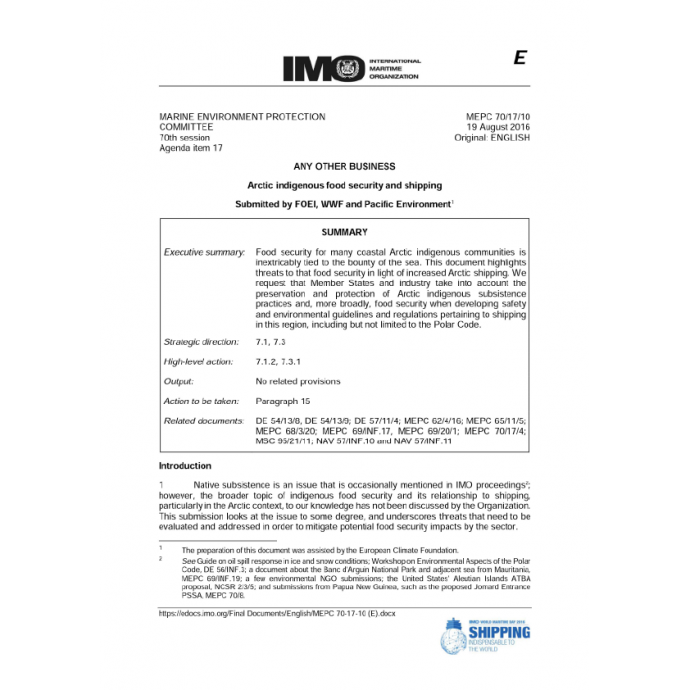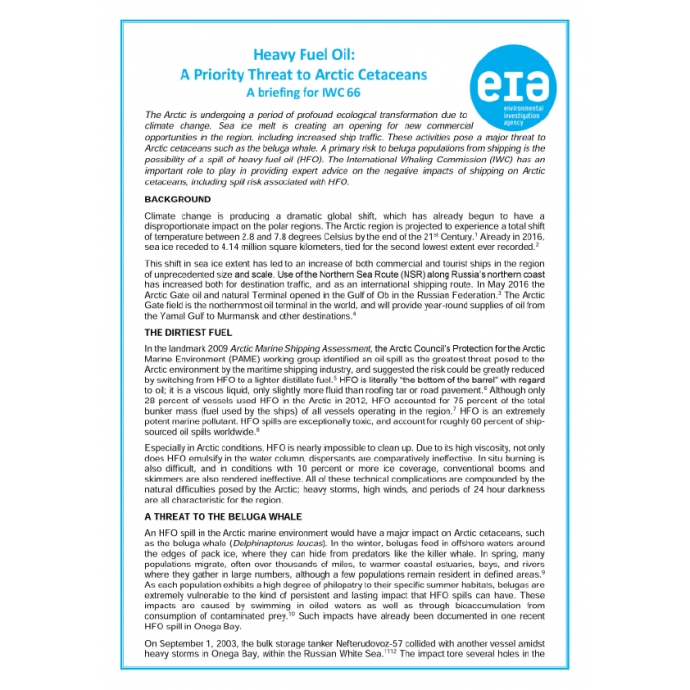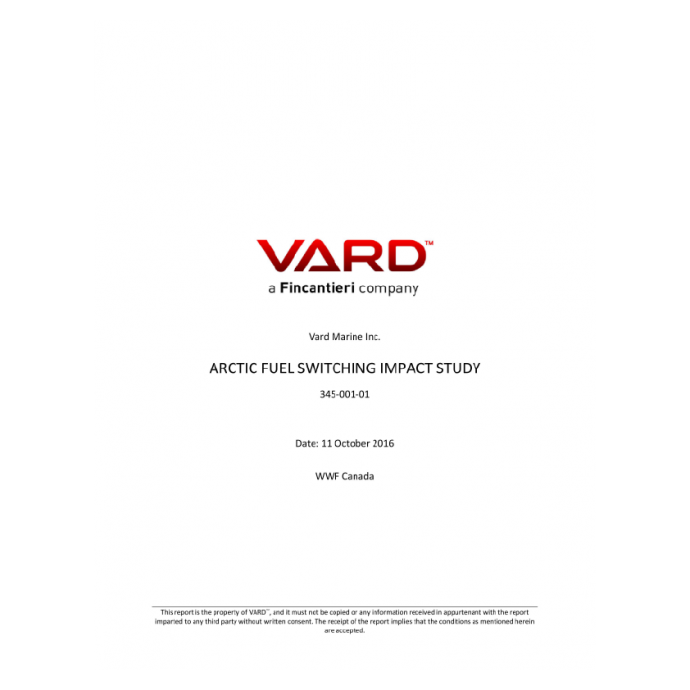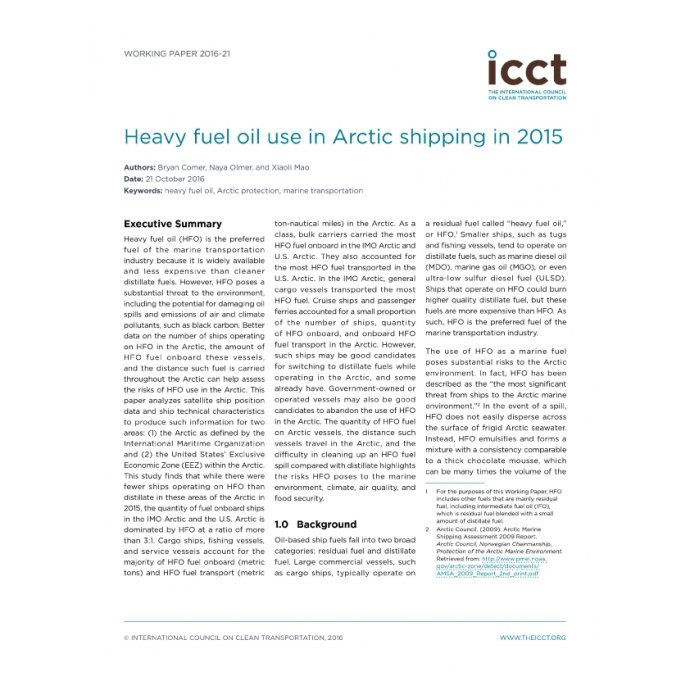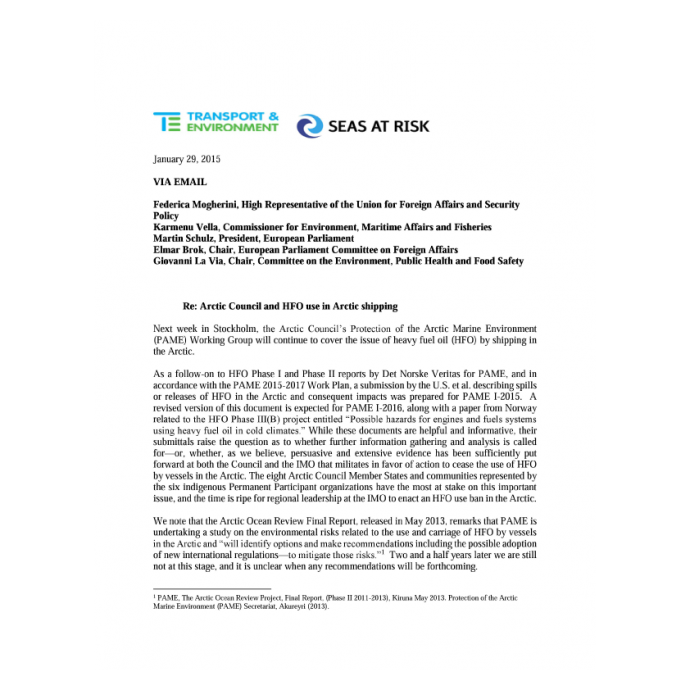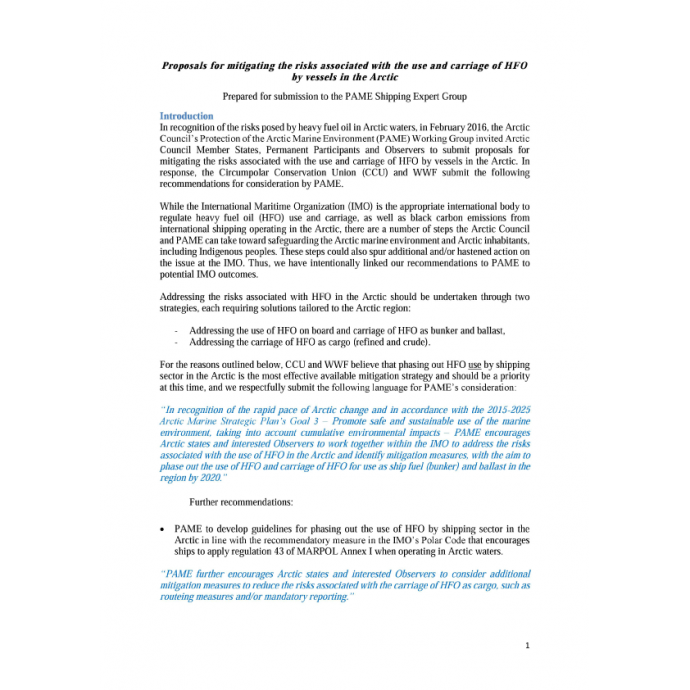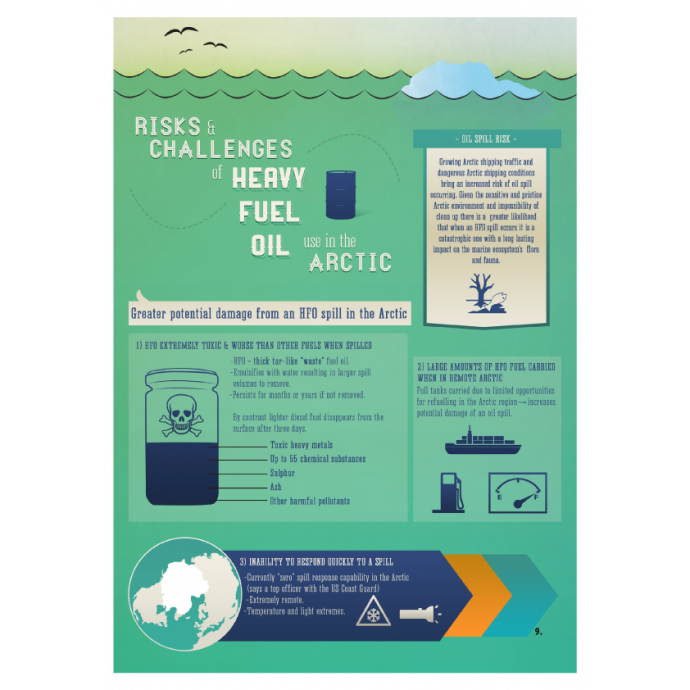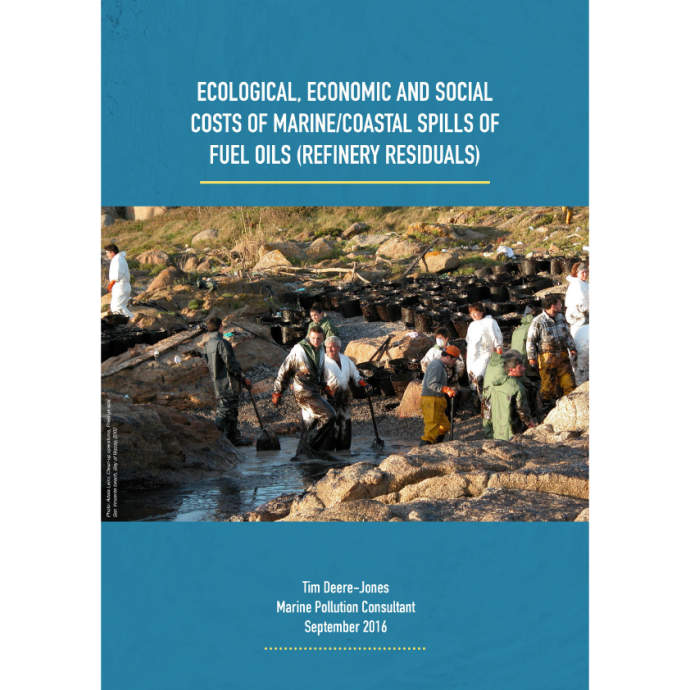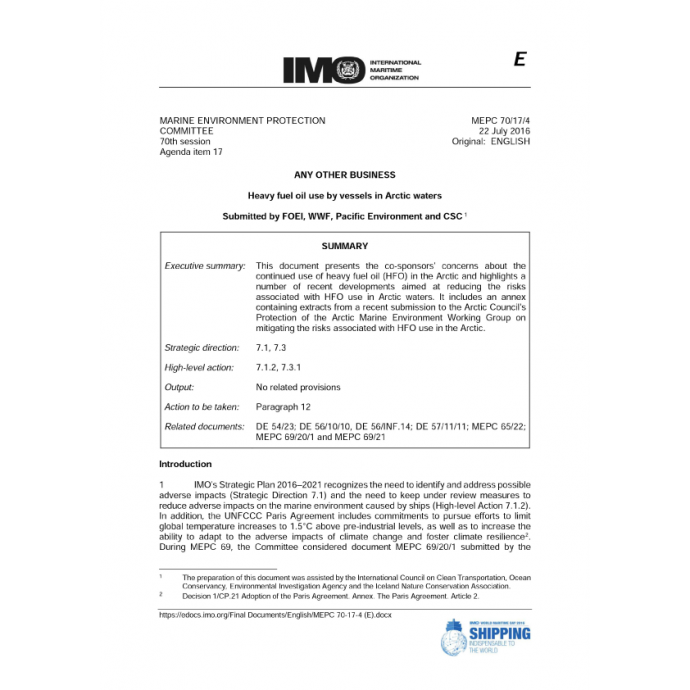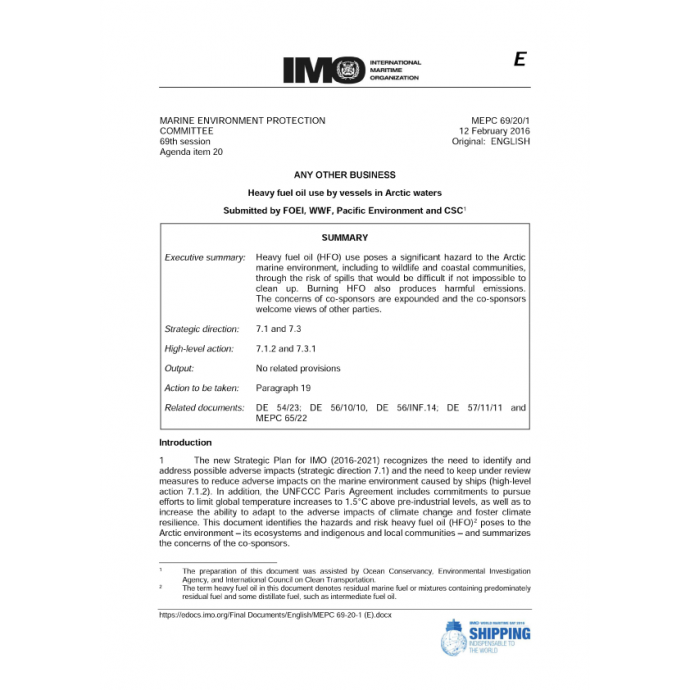Arctic indigenous food security and shipping MEPC 70/17/10
Submission paper by FOEI, WWF and Pacific Environment to the IMO
Food security for many coastal Arctic indigenous communities is inextricably tied to the bounty of the sea. This paper highlights threats to that food security in light of increased Arctic shipping activities and all its associated impacts: oil and chemical spills; marine mammal strikes and disturbance; food waste disposal; invasive species introduction from ballast water discharges and hull fouling; wastewater effluent; and air emissions, including black carbon and air toxins.

